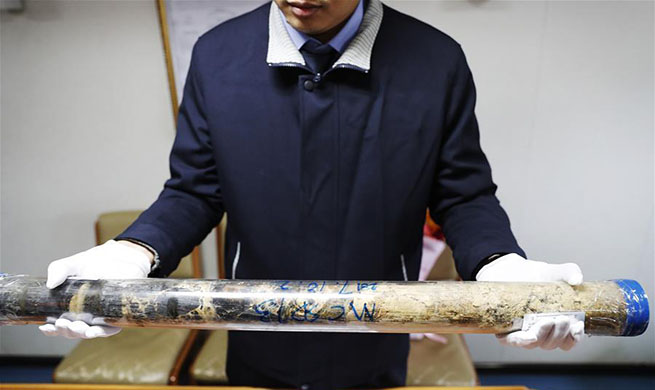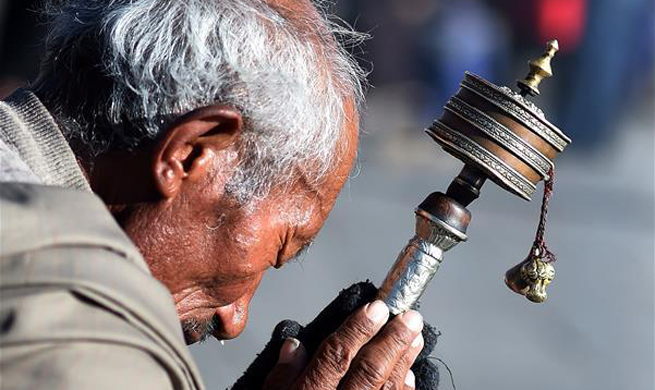by Xinhua writers You Zhixin and Wang Ruoyao
SHANGHAI, Jan. 31 (Xinhua) -- As the Year of Dog is set to begin in China, Shengmi is preparing for the busiest time of the year.
The seven-year-old labrador is one of the best members in the Shanghai Metro police sniffer dog team. He is also an online celebrity, with more than 50,000 followers on Weibo, a Chinese microblogging service.
Shengmi and other explosives-detection dogs will work longer hours to patrol the Shanghai subway, the world's longest metro system by route length, during the Chunyun, the 40-day travel rush for the Chinese Lunar New Year period which begins on Feb. 1.
NATURAL TALENT
The sniffer dog team was set up 12 years ago and currently has 137 dogs in service, in addition to 18 retired dogs. It has continued to expand since the 2010 Shanghai World Expo, adding around 10 new members each year.
The dogs have assisted police in more than 12,000 explosives cases.
The team is made up of mostly labradors or springer spaniels, both male and female, between the ages of one and 10, according to Qiu Fei, a senior officer in the team.
Both breeds are known for their keen sense of smell. They are active but less aggressive than other breeds, allowing them to perform well in crowded conditions.
The dogs also share the character trait of being possessive, Qiu said. "This gives a dog the motivation to find explosives."
WORK HARD, TRAIN HARD
The dogs are recruited, as puppies, from a police dog training center in Nanjing and receive comprehensive training in Shanghai for explosives detection.
Shengmi was trained by his handler Lu Jie for three months before beginning to work. "The courses include the basics like running and jumping, and harder tasks like explosives recognition," Lu said.
Xiaohu, whose name in Chinese means little tiger, is a five-year-old springer spaniel. He has shown outstanding abilities and is able to identify more than 10 types of explosives.
"Once he finds something, he is allowed to play with a ball for a while, or gets a pat on the back as a reward. The more you encourage him, the more effective the training will be," said Wang Shiqun, Xiaohu's handler. "Step by step, he will learn do the work proactively."
The dogs are also trained to be obedient and sensitive. "When I feel nervous, Xiaohu will become more alert. When I'm relaxed, he will be at ease," Wang said.
Training is not only about teaching and learning, but also building a strong handler-dog relationship.
"I named him Shengmi, which means raw rice in Chinese, because he looked like a little rice grain when I saw him for the first time," Lu said. "Now he has grown to be a great working partner I can trust."
Each patrol unit consisting of two dogs and two officers works for six hours every day. Dogs spend another 16 hours in training every week.
Catching the whiff of a suspicious smell, a dog will track the scent. When he sits still, the officer knows where they need to check.
"Actually, the dogs think working is just playing a game. The will to work and courage make Shengmi a good police dog, a workaholic," Lu said.
RETIRED, BELOVED
Police dogs usually retire at the age of 10 and their life expectancy is shorter than pet dogs.
Most retired dogs from the Shanghai Metro police team continue to live at the boarding kennels with their active colleagues, enjoying private accommodation and a nutritious diet, according to Qiu.
Another option for them is to be adopted by their handlers.
Wang has decided to keep Xiaohu after the dog retires in four or five years. "He takes care of me at work, so it's my duty to take care of him when he is old," Wang said.
Lu will do the same to Shengmi.
"I feed him, bathe him, play with him and buy birthday cake for him. Shengmi is like my baby," said Lu. "There's no doubt that I will do my best to offer him a comfortable life."

















